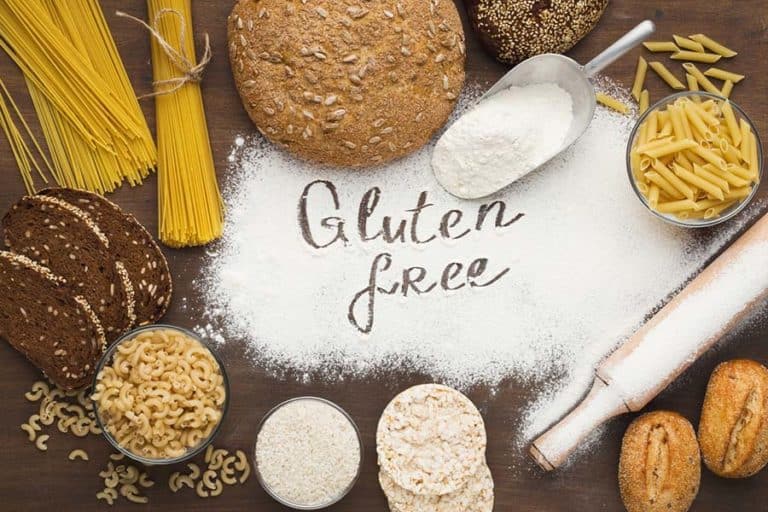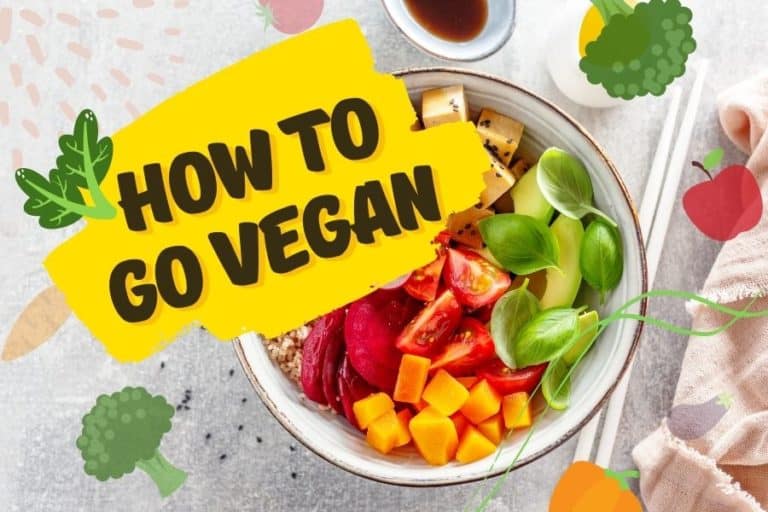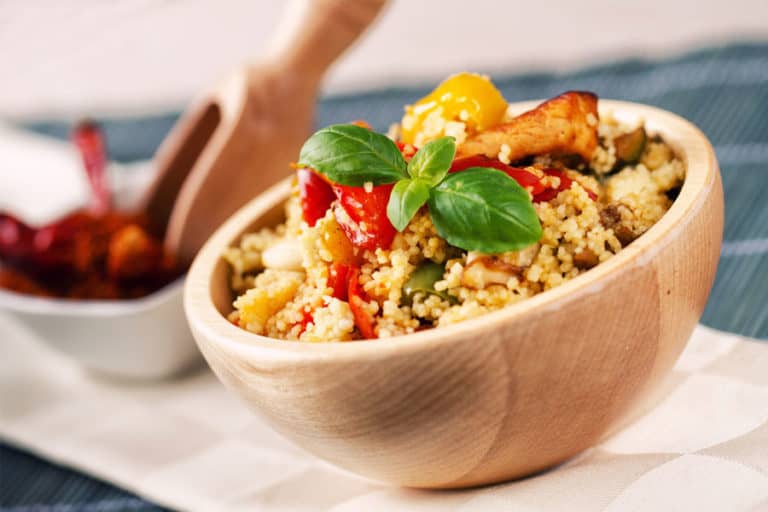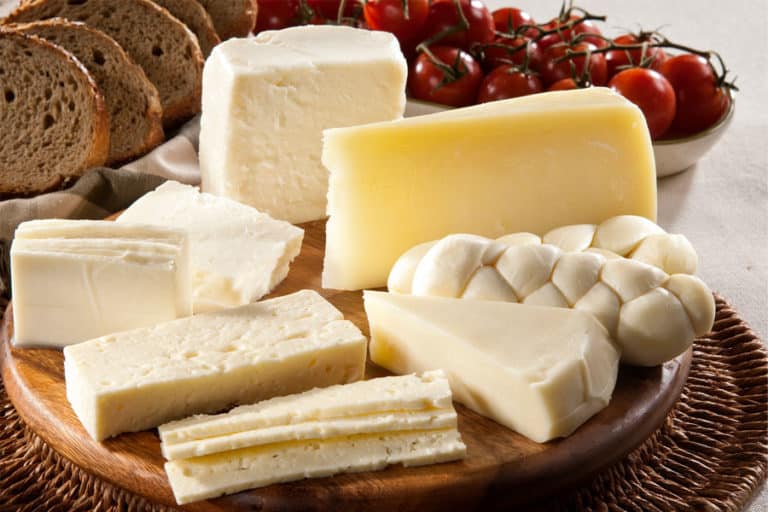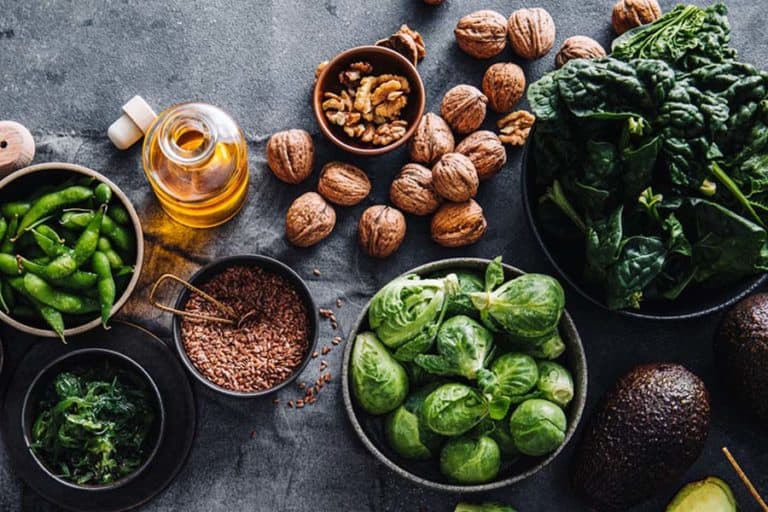Vegan Diet for Weight Loss – Does It Really Work?
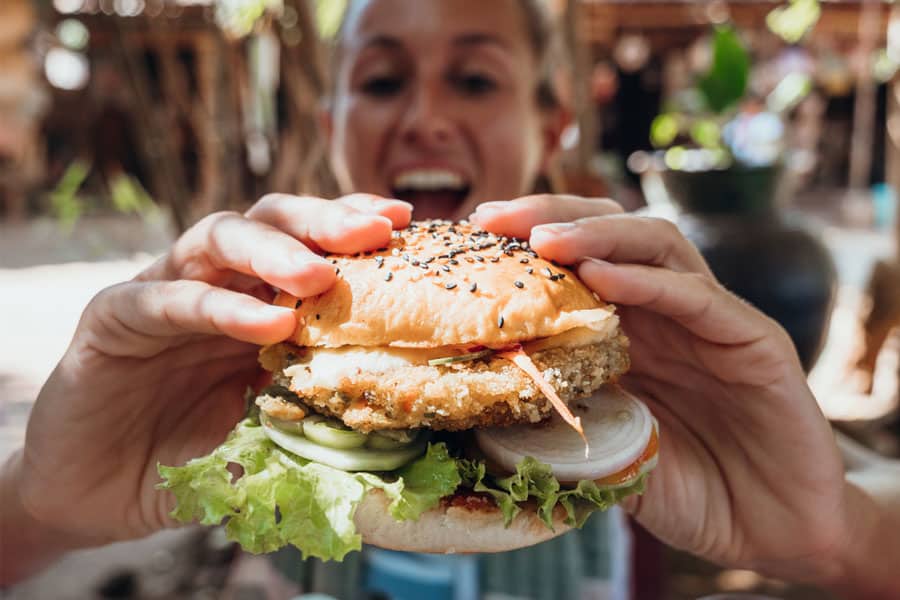
Studies have shown promising results when it comes to a vegan diet for weight loss. Increasing evidence shows that people relying on plant foods lose an average of 7.5% of their body weight.
The vegan diet has seen burgeoning popularity over the past decade. While some people opt for it for environmental reasons, others switch to plant-based diets to reap health benefits. It is believed that a vegan diet offers a multitude of health benefits, such as reduction in weight, prevention of heart disease, and reduction in blood glucose levels.
Increasing evidence from randomized controlled studies [1]PubMed: Comparative effectiveness of plant-based diets for weight loss: a randomized controlled trial of five different diets shows that people relying on plant-based diets lose an average of 7.5% of their body weight. This percentage is higher compared to vegetarian, semi-vegetarian, omnivorous, and other diet eaters. That also means going vegan can help you lose that extra fat from your belly faster if you complement it with regular exercise.
Read on to know what happens when you go vegan, how to become vegan, the benefits of a vegan diet for weight loss, and much more.
Does going vegan help you lose weight?
Is weight loss possible with a vegan diet? Is there really an effective vegan diet for weight loss? To answer these questions, we have to rely on scientific studies carried out to date. An analysis [2]National Library of Medicine: A plant-based diet for overweight and obesity prevention and treatment of a vegan diet and vegetarian diet confirms that vegans lost more weight than vegetarians.
Another 2012 study [3]National Library of Medicine: Plant-Based No Added Fat or American Heart Association Diets, Impact on Cardiovascular Risk in Obese Hypercholesterolemic Children and Their Parents published online has compared the impact of plant-based and American Heart Association Diet (AHA) on 30 obese children with high cholesterol levels. At the end of the study, it was found that children who relied on the vegan diet lost an average of 6.7 pounds. This was 197% more than the average weight lost by children who followed American Heart Association Diets.
But is this approach healthy? Well, science says that a vegan diet for weight loss cuts out some of the major food groups. Some studies reveal that people who consume vegan diets eat less protein, vitamin B12, and vitamin D. Hence, one needs to be mindful of their nutrition and ensure they get all the desired nutrients.
Before you decide to go vegan this vegan month, pay attention to your nutrition. Try to include the following vegan foods for weight loss and food sources in your everyday diet to prevent risks of nutritional deficiencies.
- Fresh fruits & vegetables
- Whole grains
- Nuts and seeds
- Beans and legumes
- Fortified soy products
- Vitamin-fortified cereals
- Multivitamin supplements
Also, limit processed foods that have these ingredients:
- Saturated fats
- Sodium
- Added sugar
- Starch
- Food additives
Dealing with meat and other non-vegan cravings
Most people who try to switch to a plant-based diet eventually give up and go back to eating meat. Fortunately, there are some tips that will help you overcome non-vegan cravings. Given below are some smart tips to stay on track:
- Start slow. You don’t have to forgo all animal-based products at once. Instead, start with eating a vegetarian diet and gradually switch to purely plant-based diets.
- Find vegan versions of foods you crave. For instance – you can replace conventional cheese with dairy-free cheese.
- Increase your fiber intake. Research has shown that higher fiber foods can help people lose weight and prevent cravings.
- Eating a balanced diet to curb most of your non-vegan cravings. You can also include supplements to combat deficiencies that can cause an increase in your cravings for meat.
- Keep yourself hydrated. Drink plenty of water and consume healthy beverages like green tea (it has zero calories).
- Rely on foods that offer you meat-like taste and texture. For this, count on tofu, mushrooms, cremini, Portobellos, etc.
- If you have a sweet tooth, keep it satisfied with fruits, dark chocolate, and dried fruit. Unsatisfied cravings can make you feel deprived and stressed and throw you spiraling back into your nonvegan and non-vegetarian diets.
- Use healthy seasonings to make your sandwiches, curries, and BBQ dishes. Herbs and spices like sage, rosemary, thyme, oregano, and black pepper will give you the desired taste, often with an addition of as low as zero calories.
- Meal prep is always a good idea when it comes to staving off cravings. Plan your meals in advance. Also, stock up on all vegan ingredients. Having all the ingredients in your pantry will not let you get hungry or wait for your next meal.
Sample vegan diet meal plan for weight loss
It is a common misconception that a vegan lifestyle is extremely restrictive. This is not the case. Veganism can offer you plenty of options and variety in taste and nutritional value.
Planning a vegan diet for good health and to counter unwanted weight gain is not tricky as it might seem. You simply need to learn to master the art of creating a balanced meal plan rich in essential micro and macronutrients like enough proteins, fiber, carbs, healthy fat, vitamins, and minerals.
If you have a fair understanding of basic dietary guidelines and the RDA(recommended daily allowance) of essential macro and micronutrients, vegan meal prep can be a breeze.
To help you get started, we have come up with a 7-day sample vegan diet for those who wish to cut out extra calories and lose weight.
| Day | Type of meal & vegan foods to eat |
| Monday | Breakfast – Coconut yogurt with berries and whole-grain toast Lunch – Sauteed veggies with baked tofu Dinner – Chickpea and veggie tacos |
| Tuesday | Breakfast – Fresh fruits, oatmeal prepared with almond milk and nuts Lunch – Whole-grain pasta and vegetable salad Dinner – Mushroom lentil loaf and bean curry |
| Wednesday | Breakfast – Quiche with spinach, broccoli, onion, spinach, and tomatoes Lunch – Brussels sprouts with veggies Dinner – Butternut squash, lentil soup, and oat risotto |
| Thursday | Breakfast – Dairy-free chocolate pancakes and Swiss chard Lunch – Tempeh taco salad with mixed veggies Dinner – Lentil balls and brown rice |
| Friday | Breakfast – Fruit smoothie and sweet potato toast topped with nut butter Lunch – Stuffed bell peppers and Mediterranean lentil salad Dinner – Vegan cheese and veggie roll with guacamole |
| Saturday | Breakfast – Overnight oats with peanut butter and seeds Lunch – black bean veggie burger and potato wedges Dinner – Sautéed mushrooms, chickpea curry, and brown rice |
| Sunday | Breakfast – Vegan protein shake, whole-grain toast with nutritional yeast Lunch – Quinoa with stir-fried veggies and tofu Dinner – Mac n cheese with collard greens |
What happens to your body when you switch to a plant-based diet?
Consuming a plant-based diet has several benefits for your health. We assure you that you will begin to notice its impact from day one. Of course, not every effect is massive enough to be noticeable, but if you are mindful of your body’s signals, you will notice those positive changes soon enough.
Let’s give you a gist of what happens to your body if you start eating a plant-based diet. Given below is the timeline of the physical benefits of being vegan.
Within 1 hour: Better blood glucose levels
The foremost physical benefits of being vegan you will reap, are related to your blood glucose levels. People struggling with diabetes will find it easy to manage the symptoms of their condition within an hour of eating a plant-based diet.
When you eat foods from plant-based sources, the fiber content in them is handled differently by your body than the way it digests carbs. As the body cannot break down fiber immediately, it is less likely to cause blood sugar spikes. So, going vegan benefits diabetic people, provided they include plenty of fiber in their diet.
Within 2-3 days: Frequent trips to the bathroom
Switching to a plant-based dietary lifestyle often implies the inclusion of healthy, high fiber foods. Unless you substitute your previous unhealthy dietary patterns with new unhealthy foods like vegan junk food, you will automatically consume more fiber than you are used to.
So, when you consume a plant-based diet, you will notice its impact on your digestive system. Your bowel movements can become more regular. You may find yourself making more trips to the bathroom than before. Improvements in the digestive system will further boost metabolism and help with weight loss in the long run.
Within 1 week: Stabilized blood pressure & cholesterol
If you think that weight loss is the only way to redeem the physical benefits of a plant-based diet, you are wrong. Vegan health benefits also entail stabilized cholesterol and blood pressure too!
Multiple studies show that going vegan can impact one’s cholesterol levels positively. Research [4]National Library of Medicine: Dietary Fiber, Atherosclerosis, and Cardiovascular Disease shows that healthy vegan diets generally include high fiber foods, which could help reduce cholesterol levels.
Further, a review [5]National Library of Medicine: Cardiometabolic risk factors in vegans; A meta-analysis of observational studies of collective peer-reviewed studies related to vegan and omnivorous diets depicts that vegans have a lower blood pressure than people who eat meat. You will stand less risk of contracting any coronary artery disease in the long run.
After 2 weeks: Weight loss upon ditching sugar
Does going vegan help you lose weight? The answer is – Yes! Switching to a whole-food, plant-based diet devoid of added sugar can help you lose more weight. However, this weight loss is only achieved when you are mindful of what you eat.
Your plant-sourced diet should also be free of refined carbohydrates, such as white rice, bread, pasta, added sugars, highly processed packaged foods, etc. Instead, a plant-sourced diet for weight loss should focus on whole foods rich in fiber.
Within 3-4 weeks: More energy
In about three weeks of consuming a plant-based diet, you are likely to experience more energy. This is one of the major benefits of veganism that people all over the world experience.
A plant-based diet includes foods that are rich in nutrients and antioxidants. These essential nutrients not only improve your overall health and give you a serious boost of energy, provided you eat whole foods and nutrient-dense foods. Due to the high nutrient density of the plant-based foods you eat, you will no longer feel the need to fill your body with simple and quick-burning carbohydrates and fatty stuff.
So, if you have been struggling with low energy levels, it is time to go vegan!
After 1 month: Clear skin
Is being vegan healthy for your skin? Yes, it is! A typical vegan diet consists of whole fruits and vegetables rich in skin-benefiting antioxidants and enzymes. Eating foods high in healthy nutrients like good carbs, healthy fats, proteins, vitamins, minerals, and antioxidants can do wonders for your skin. These essential nutrients improve your skin health by fighting off free radicals and eventually prevent premature aging.
Further, the high fiber content in certain fruits & veggies can help cleanse your system by flushing out toxins and keeping the digestive system functioning properly. As a result, you will notice an improvement in your blood circulation resulting in enhanced nutrient supply to skin tissues. All these factors end up increasing the appearance of the skin.
Within 6 weeks: Better sex life
Did you know that veganism can help improve your sex life? Yes, it is true! The fact is consuming more plant-based foods helps in stabilizing hormones and improving blood circulation leading to better sex life.
A plant-based diet is typically rich in antioxidants which help fight off free radicals in the body. Free radicals are known to damage cells and cause inflammation. Thisin turn, can lead to a host of sexual problems such as erectile dysfunction, loss of libido, etc.
Antioxidants present in a plant-based diet can help reduce inflammation and improve blood circulation to all parts of the body, including the brain. They also increase serotonin levels, eventually leading to healthier sex life.
Benefits of going vegan
Ditching meat and animal products may seem an enormous sacrifice for many. But for some, a vegan diet and associated personal & environmental benefits make the reason behind this switching a no-brainer.
Undoubtedly, people who eat plant foods will surely benefit from a better and healthier weight loss compared to those who don’t. Additionally, plant-based foods are also linked with a host of other health benefits like improved heart health, reduced risk of cancer, better blood sugar control, and so on.
So, if you are looking for sustainable weight loss along with some amazing health benefits, it is time to switch to a plant-based diet!
Some of the key benefits of going vegan include
- Better heart health
- Lower levels of bad cholesterol
- Reduced high blood pressure
- Reduced risk of certain cancers
- Clear skin
- Better blood circulation
- Enhanced sex drive
- Reduced symptoms of diabetes
- Weight loss
Having said that, one can redeem the above benefits of a vegan diet only if it’s healthy. Make sure the diet is devoid of refined carbs, sugary foods, and unhealthy fat-laden stuff. Also, your diet should comprise all primary macronutrients and micronutrients. To make the most of your plant-based diet, include the following nutrients in your everyday meals:
- Healthy carbohydrates: Get them from whole grains, such as oatmeal, wheat pasta, brown rice, etc.
- Protein: Try lentils, nutritional yeast, tofu, edamame, nuts, and seeds.
- Essential fatty acids: Eat nuts, seeds, olive oil, avocado, and leafy green vegetables.
- Vitamin A, C, & E: Include nuts, citrus fruits, and wheat germ oil in your diet.
- Calcium and vitamin D: Rely on vitamin D fortified soy milk and orange juice.
- Vitamin B12: Count on fortified soy drinks and cereals.
- Iron: Eat spinach, beans & lentils, cashews, and tofu.
- Zinc: Include nuts, seeds, legumes, wheat germ, and tofu in your diet.
Conclusion
Well-rounded vegan diets are incredibly healthy and offer a multitude of health benefits. These benefits include better blood glucose levels, efficient weight loss, improved cardiovascular health, better sex life, and clear skin.
If you want to lose weight, rely on plant-based foods that are whole and nutrient-rich. Avoid processed food high in saturated fats, sodium, starch, and sugar. You can also count on health supplements to avoid nutritional deficiencies. As long as you have all the essential nutrients on your vegan platter, you are good to go and on the right path to vegan weight loss.
References
| ↑1 | PubMed: Comparative effectiveness of plant-based diets for weight loss: a randomized controlled trial of five different diets |
|---|---|
| ↑2 | National Library of Medicine: A plant-based diet for overweight and obesity prevention and treatment |
| ↑3 | National Library of Medicine: Plant-Based No Added Fat or American Heart Association Diets, Impact on Cardiovascular Risk in Obese Hypercholesterolemic Children and Their Parents |
| ↑4 | National Library of Medicine: Dietary Fiber, Atherosclerosis, and Cardiovascular Disease |
| ↑5 | National Library of Medicine: Cardiometabolic risk factors in vegans; A meta-analysis of observational studies |


